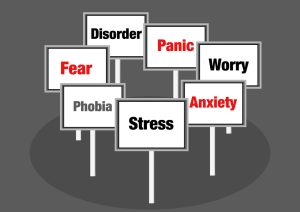Mental health and crisis response remains an important issue in the United States. Poor crisis management and mental health issues have led to shootings and a variety of unstable social encounters. While better care is still needed, another issue that remains forefront is how emergency response teams handle calls with those experiencing mental issues. Police in recent years have made negative news stories with using excessive force against those with mental issues. Instead of de-escalating, police and emergency response answer calls more so from a military perspective of controlling and subduing the individual.

Crisis Counselors and other mental health professionals need to be utilized more in response to these calls and emergency response and police need better training how to de-escalate a situation with someone. Police, while needing to protect themselves, also need to be able to subdue someone in mental crisis without killing them. This takes more training in mental health and better non lethal restraint methods.
Commentary
When it comes to responding to mental health crises, police departments face numerous challenges. One major challenge is the lack of adequate training in dealing with individuals experiencing mental health issues. Police officers often receive minimal training in this area, which can lead to misunderstandings, miscommunication, and potentially dangerous situations. Without the necessary knowledge and skills to handle mental health crises, officers may resort to using force or making arrests, exacerbating the situation and potentially causing harm to both the individual in crisis and the officers involved.
Another challenge is the lack of collaboration between law enforcement and mental health professionals. In many cases, police officers are the first responders to mental health crises, but they may not have the expertise to provide appropriate care or connect individuals with the appropriate resources. This disjointed approach can result in individuals not receiving the care they need, leading to repeated crises and even tragic outcomes.
The impact of inadequate training on police response to mental health crisis
The lack of adequate training in responding to mental health crises has a significant impact on how police officers handle these situations. Without proper training, officers may rely on their instincts or previous experiences, which may not be applicable to the unique challenges presented by mental health crises. This can lead to misunderstandings, fear, and escalating tensions, making it difficult to de-escalate the situation and provide the necessary support to individuals in crisis.
Additionally, inadequate training can contribute to stigmatization and bias towards individuals with mental health issues. Without understanding the complexities of mental health, officers may rely on stereotypes or assumptions, potentially leading to discriminatory practices. This not only violates the rights of individuals in crisis but also undermines trust between law enforcement and the community they serve. Crisis Intervention Training as well as Mental Health Training is important
The need for collaboration between law enforcement and mental health professionals
To address the challenges in police response to mental health crises, collaboration between law enforcement and mental health professionals is crucial. By working together, these two sectors can pool their resources, knowledge, and expertise to develop comprehensive approaches to addressing mental health crises. Mental health professionals can provide training and guidance to police officers, helping them understand the nuances of mental health and providing strategies for de-escalation and crisis intervention.

Furthermore, collaboration can lead to the establishment of specialized crisis intervention teams. These teams consist of both police officers and mental health professionals who respond to mental health crises together. By combining their skills and knowledge, these teams can provide a more compassionate and effective response, ensuring that individuals in crisis receive the appropriate care and support they need.
The role of community-based mental health services in reducing police involvement
One effective solution to reducing police involvement in mental health crises is the expansion of community-based mental health services. By providing individuals with access to mental health resources and support within their own communities, the reliance on police as first responders can be minimized. Community-based mental health services can offer early intervention, prevention, and ongoing support, reducing the likelihood of crises occurring in the first place.
These services can include mobile crisis teams that respond to mental health crises directly, providing immediate assessment and intervention. Additionally, community-based mental health centers can offer ongoing counseling, therapy, and support groups, helping individuals manage their mental health and prevent crises from escalating.
Crisis intervention teams: a specialized approach to police response
Crisis intervention teams (CIT) are a specialized approach to police response in mental health crises. CIT programs train police officers to recognize and respond to individuals experiencing mental health crises in a safe and appropriate manner. Officers who undergo CIT training receive education on mental health, de-escalation techniques, and community resources, equipping them with the skills needed to effectively respond to mental health crises.
CIT programs also emphasize collaboration and partnership with mental health professionals. Through partnerships with local mental health agencies, CIT officers can refer individuals to appropriate resources and ensure they receive the care they need. This collaborative approach not only improves the outcomes for individuals in crisis but also strengthens the relationship between law enforcement and the community.
Alternative response models: exploring non-police options for mental health crisis
While police response is often the default in mental health crises, alternative response models are gaining recognition as effective alternatives. These models involve diverting mental health crisis calls away from police departments and towards specialized mental health teams. These teams, consisting of mental health professionals, social workers, or paramedics, are better equipped to provide the necessary support and care for individuals in crisis.
One example of an alternative response model is the implementation of co-responder programs. In these programs, mental health professionals accompany police officers when responding to mental health crisis calls. By having a mental health expert on-site, the focus shifts from a law enforcement response to a more therapeutic approach. This can lead to better outcomes for individuals in crisis, as they receive immediate mental health support and guidance.
Strategies for improving police training in mental health crisis response
Improving police training in mental health crisis response is essential for ensuring that officers are equipped to handle these situations effectively. One strategy is to incorporate mental health education and crisis intervention training into basic law enforcement training programs. By providing officers with a solid foundation in mental health awareness and crisis de-escalation techniques early on, they will be better prepared to respond appropriately in the field.

Additionally, ongoing training and professional development opportunities should be provided to police officers throughout their careers. This can include specialized workshops, scenario-based training, and access to mental health experts who can provide guidance and support. By investing in continuous training, police departments can ensure that their officers remain up-to-date with the latest best practices and strategies for responding to mental health crises.
The importance of data collection and analysis in addressing the challenges
Data collection and analysis play a crucial role in addressing the challenges faced by police in responding to mental health crises. By collecting data on the frequency, nature, and outcomes of these interactions, police departments can identify patterns, trends, and areas for improvement. This data can inform policy decisions, resource allocation, and training initiatives, ensuring that responses to mental health crises are evidence-based and effective.
Furthermore, data can help identify disparities and inequities in police response to mental health crises. By examining demographic information, such as race, gender, and socioeconomic status, departments can identify any biases or disproportionate impacts on specific communities. This information can then be used to implement targeted interventions and ensure that all individuals receive fair and equitable treatment.
Success stories and best practices in police response to mental health crisis
Despite the challenges, there have been notable success stories and best practices in police response to mental health crises. One example is the Crisis Intervention Team (CIT) program implemented in Memphis, Tennessee. This program has resulted in a significant reduction in arrests and use of force incidents involving individuals with mental health issues. By providing officers with specialized training and support from mental health professionals, the program has transformed the way police respond to mental health crises in the community.
Another success story is the implementation of co-responder programs in various cities across the United States. These programs have shown promising results in diverting mental health crisis calls away from police departments and towards mental health professionals. By working together, these teams can provide immediate support, connect individuals with appropriate resources, and ensure that crises are resolved in a safe and compassionate manner.
Conclusion: the way forward for effective police response to mental health crisis
Addressing the challenges in police response to mental health crises requires a comprehensive and collaborative approach. By improving training, fostering collaboration between law enforcement and mental health professionals, expanding community-based mental health services, and implementing alternative response models, police departments can enhance their ability to respond effectively and compassionately to individuals in crisis.

Furthermore, prioritizing data collection and analysis, as well as learning from success stories and best practices, can inform evidence-based strategies and policies that promote equitable and humane responses to mental health crises. By working towards these solutions, we can create a future where individuals experiencing mental health crises receive the care and support they need, while also ensuring the safety and well-being of both the community and the officers involved.
Please also review AIHCP’s Crisis Intervention Practitioner Program. The program is open to qualified professionals looking to implement crisis intervention into their careers or posts. The program is online and independent study and provides the necessary knowledge for counselors, social workers, and law enforcement to better answer crisis calls.
Additional Resources
“Mental Health And Police Violence: How Crisis Intervention Teams Are Failing”. Eric Westervelt. September 18th, 2020. NPR. Access here
Crisis Intervention: A Stabilizing Force. Megan Gates. January 1st, 2022. Security Management. Access here
“Mobile Crisis Teams: Providing an Alternative to Law Enforcement for Mental Health Crises”. Hannah Wesolowski. July 13th, 2022. NAMI. Access here


















